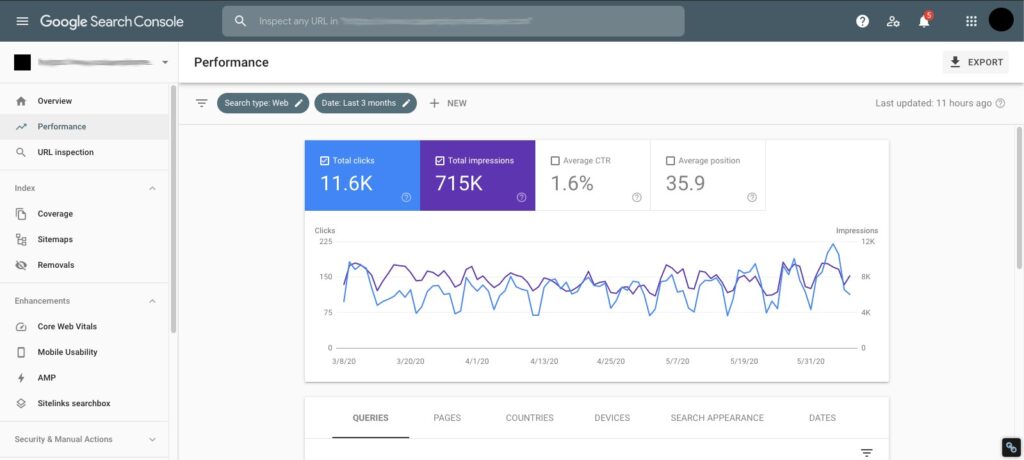Why Your Law Firm Should Blog (2020)

If you’re a lawyer, there is a good chance you have heard how blogging is an essential part of marketing. However, you may not know how so. As marketers at NextClient, we understand its importance.
Blogs increase your online presence and allow you to show off your expertise. Through frequent blogging, you have more chances to show up in search engines and captivate an audience in need of your legal services. Let’s look into what this means and why you should invest your time and/or money in blogs for your firm.
Before going into all the reasons, it is necessary to understand what blogging is.
What is Blogging?
It may seem obvious, but it’s important to establish this at the onset.
A blog is an online journal that contains ‘diary-style entries.’ On a website, these entries or posts are displayed in reverse-chronological order. The most recent entry will appear at the top.
Blogging is a form of digital marketing. The informative blog will promote and build awareness around your products and services. It’s a platform where your law firm can share its perspective and expertise. Blogs are a good way to convey information and relate to your audience.
Regular blogging can be beneficial for building an online presence, drawing in prospective clients, and building a reputation. The next section will elaborate on the benefits.
Why is Blogging Important for Law Firms?
Search Engines Love Blogging.
Search engines reward websites that regularly update their content. This is especially important for law firms looking for a competitive advantage
Updating your website with useful content sends a good signal to search engines. Websites that update their content are seen as fresh, relevant, and useful. From the audience’s perspective, this is a business that cares about its customers.
Search engines look to better cater to searchers’ search queries (i.e. your audience). To that end, they will better rank a website that updates its content to serve their users. So it is logical from both points of view to blog.
You can Display Your Expertise.
You can display your expertise to both your potential customers and search engines.
Once the audience finds your blog and info useful, they will be more likely to trust you. A blog post aims to solve someone’s problems (i.e. search queries via Google). So in the case of a divorce lawyer who chooses to explain the divorce process, someone might find the info useful. This may convince them to consult with the lawyer or keep the firm’s name in mind for the future. Over time this can help the lawyer and the firm establish their name.
More Content and Blogs Means More Ways to Find You
The more blogs you publish, the more people are able to find you. For instance, consider the same divorce lawyer has a blog post on child custody and one on gray divorce. Having both types of posts allow searchers of the two different terms to find your firm.
Additionally, since there is a wider base of content, it would lead to more lead opportunities. Over time, you can see which content performs well through tools such as Google Console or Moz. These tools will allow you to see what content your audience responds to. This practice is useful when planning future topics and service pages for your audience.

Generate more Traffic to Your Website.
More traffic to your main domain is inevitable through blogging. Mainly, this occurs in two ways.
First, more people will find your main website from the blogs they encounter. Second, search engines will start to rank your website higher as it gains more trust over time.
The widely-referenced scale, developed by Moz, is called domain authority. It predicts how well a site ranks on the search engine results pages (SERPs). Websites with better domain authority rank higher, and blogs can help contribute to a better domain authority score.
If people trust you with info from your blog, Google has more reason to show your main website higher. This applies even if your blog doesn’t generate much traffic. Overtime with blogging, Google will index more of your pages and generate more traffic through these sources. As a result, it will help boost the rankings of your domain or main website.
Marketing Efforts of Blogs are Longer Lasting than Traditional Ads.
When you publish an article or blog to your website, the content is permanent. Since blog articles can rank for long time periods on search engines, they can serve as a ‘cheap form of advertising.’
Once they’re online, they stay published as part of your website. A downside to ads is that they cost money to maintain. Blogs are free to write, and there is no entry point. All lawyers can cover topics that they are experts at.

Gives you Content to Share on Social Media.
Did you know there are over 2.5 billion active users on Facebook daily? Marketing efforts should be placed on social media concurrently. And blogging contributes and helps marketing efforts on social media.
Firstly, you can take the content you produce for your blog and use it as excerpts for your social postings. Additionally, you can link your blogs directly to correspond to a social media post.
Posting blogs on social media helps with rankings of your website.
You Can Point Your Customers to Legal Content.
If you are busy with many clients, you can point them to your legal content. These can be posts that would address common concerns.
For example, consider a divorce lawyer who makes a blog about prenuptial agreements. In the blog, they can outline a few steps for someone wanting to establish a prenup. This can be helpful to one of their divorced clients who is looking to get married again and wants to take precautions.
Another example that’s more applicable to anyone is a frequently asked questions section (FAQ). In the FAQ section, you can address costs and other common topics. This section is great to point new clients to as well as returning clients. It helps save time and will allow you to focus on your practice instead of answering the same question multiple times.
Arguments Against Blogging Debunked
I don’t care about SEO.
SEO might not be part of your current marketing strategy. However, if you knew that you could multiply your leads and gain more potential customers, wouldn’t you consider going that route?
No one will read my blog.
If you read the above benefits; it will be easy to understand why you should blog. Yes, your blog might not be read by hundreds or thousands of people. But there are a few big reasons you should blog – the many search engines that crawl the web. Blogging will eventually lead to more potential clients and people vetting your services and expertise.
I have no time.
Blogs can be time-consuming. They are an investment for the long-run and can’t be produced instantaneously.
However, there are ways around this. Within your firm, you could delegate some of the blogging tasks, such as firm updates, case results, and testimonials, to an associate. You can also task that same person to help write the blogs.
There are many online guides to help you. At NextClient, we also include blogging as part of our SEO services, which transitions to the next argument.
I have no money.
We usually recommend lawyers to outsource blogging since doing it themselves wouldn’t be the best use of their time. If you factor in the time it takes to put together a blog versus the hourly rate that you charge as a lawyer, you’ll see you are better off hiring a professional service to handle the blogging while you focus on billable hours.
However, if your firm is on a limited budget, you might find yourself with more time on your hands to blog. This is especially true in the beginning stages of any lawyer’s career. So, you can go through the steps to gain more potential business over time before you delegate the task to a marketing firm.
Summary
If you want to expand your business presence on the internet and increase your opportunities and leads, we highly suggest you consider starting and maintaining a legal blog for your firm.
